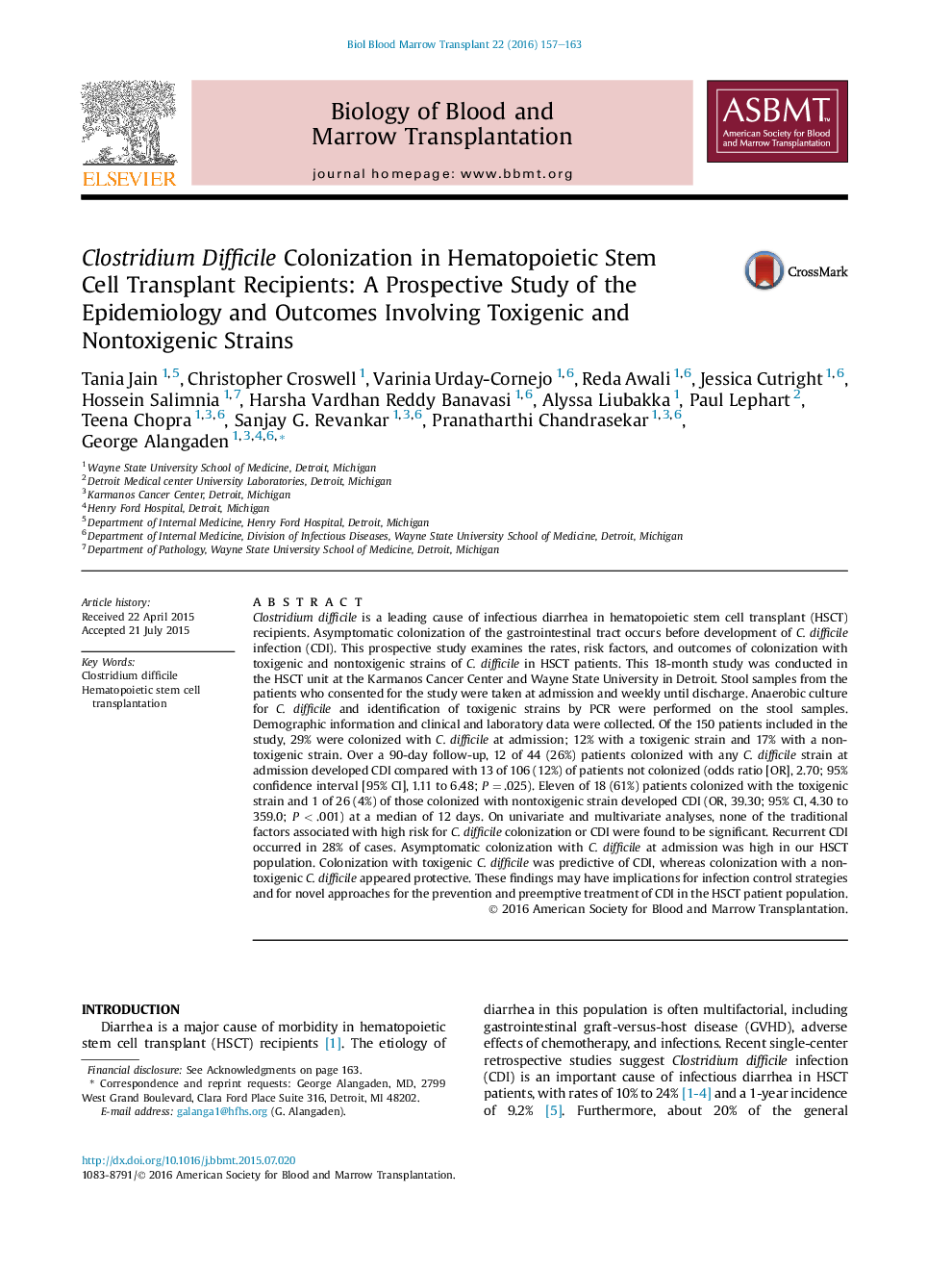| کد مقاله | کد نشریه | سال انتشار | مقاله انگلیسی | نسخه تمام متن |
|---|---|---|---|---|
| 2101419 | 1546259 | 2016 | 7 صفحه PDF | دانلود رایگان |
• We study Clostridium difficile colonization in hematopoietic stem cell transplantation patients.
• Colonization with C. difficile was common in this population.
• Colonization with toxigenic C. difficile was predictive of C. difficile infection.
• Colonization with nontoxigenic C. difficile decreases risk of C. difficile infection.
Clostridium difficile is a leading cause of infectious diarrhea in hematopoietic stem cell transplant (HSCT) recipients. Asymptomatic colonization of the gastrointestinal tract occurs before development of C. difficile infection (CDI). This prospective study examines the rates, risk factors, and outcomes of colonization with toxigenic and nontoxigenic strains of C. difficile in HSCT patients. This 18-month study was conducted in the HSCT unit at the Karmanos Cancer Center and Wayne State University in Detroit. Stool samples from the patients who consented for the study were taken at admission and weekly until discharge. Anaerobic culture for C. difficile and identification of toxigenic strains by PCR were performed on the stool samples. Demographic information and clinical and laboratory data were collected. Of the 150 patients included in the study, 29% were colonized with C. difficile at admission; 12% with a toxigenic strain and 17% with a nontoxigenic strain. Over a 90-day follow-up, 12 of 44 (26%) patients colonized with any C. difficile strain at admission developed CDI compared with 13 of 106 (12%) of patients not colonized (odds ratio [OR], 2.70; 95% confidence interval [95% CI], 1.11 to 6.48; P = .025). Eleven of 18 (61%) patients colonized with the toxigenic strain and 1 of 26 (4%) of those colonized with nontoxigenic strain developed CDI (OR, 39.30; 95% CI, 4.30 to 359.0; P < .001) at a median of 12 days. On univariate and multivariate analyses, none of the traditional factors associated with high risk for C. difficile colonization or CDI were found to be significant. Recurrent CDI occurred in 28% of cases. Asymptomatic colonization with C. difficile at admission was high in our HSCT population. Colonization with toxigenic C. difficile was predictive of CDI, whereas colonization with a nontoxigenic C. difficile appeared protective. These findings may have implications for infection control strategies and for novel approaches for the prevention and preemptive treatment of CDI in the HSCT patient population.
Journal: - Volume 22, Issue 1, January 2016, Pages 157–163
